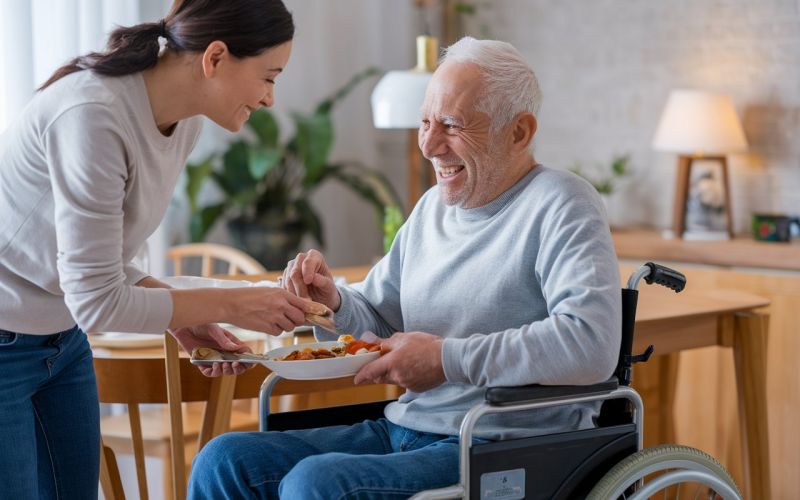Caregivers: Seeking Help and Support
The iSavta Team | 13.11.2019

Even though caregivers have been given precautionary approaches to giving healthcare and the effects that come with it, caregivers are still exposed every day to stress that leads them to burn out. “Compassion fatigue is an extreme state of tension and stress that can result in feelings of hopelessness, indifference, pessimism and overall disinterest in other people’s issues,” explains Christine Valentin, LCSW, owner of a private counseling practice in New York and New Jersey.
Compassion fatigue is considered a secondary traumatic stress disorder that emanates from being continually exposed to another person's traumatic experience and translates to his own emotional stress. This is a generic occupational hazard for people who are involved in health care such as nurses, counselors and child protection workers.
These are people who are exposed to stress and trauma in their work environment and are most susceptible to this hazard. Early signs of compassion fatigue vary from person to person but below are some of the most common:
- Heightened anxiety
- Impaired ability to make decisions about caring
- A decrease in patience and tolerance
- Feeling overwhelmed, exhausted and drained
- Angry outburst and meltdown
There are things you can do to help you prevent burnout and compassion fatigue. The first thing that you have to consider is taking care of yourself first. You have to know that you also have personal needs. If you don’t take care of yourself, you will eventually run out of energy and motivation. You will give up in the long run. Always make time for yourself.
Enjoy the things that you are passionate about. If reading can relieve you some stress then spend more time on that. If you love sports or anything that drives you, do it. This will re-energize you and reset your mind so you will go back feeling refreshed.
The following are the things that you can do to help you reset and inspire you to be better:
- Connect with other caregivers - when you are able to connect and have a conversation with other caregivers, you have the opportunity to share your sentiments, verbalize your emotions and being able to relate to those who are in the same situation.
- Have an active lifestyle - just because you spend a lot of time as a caregiver does not mean you are limited to do only a few things. There are outdoor activities that can help you to have an active lifestyle like exercise, running, jogging, or walking in nature.
- Reorganize your time in caregiving - talk with family members on how you can share the load and responsibilities in caring for your loved one. If this is your patient, shorten your time and arrange with others so you can still spend time outside and do what you love doing.
Seek support from professionals - talk it out with doctors and psychiatrists. You will need to get as much support from them as you can. Ask them what you can do or what you can incorporate in your caregiving that will ease the burden and make things easy for you to do.












